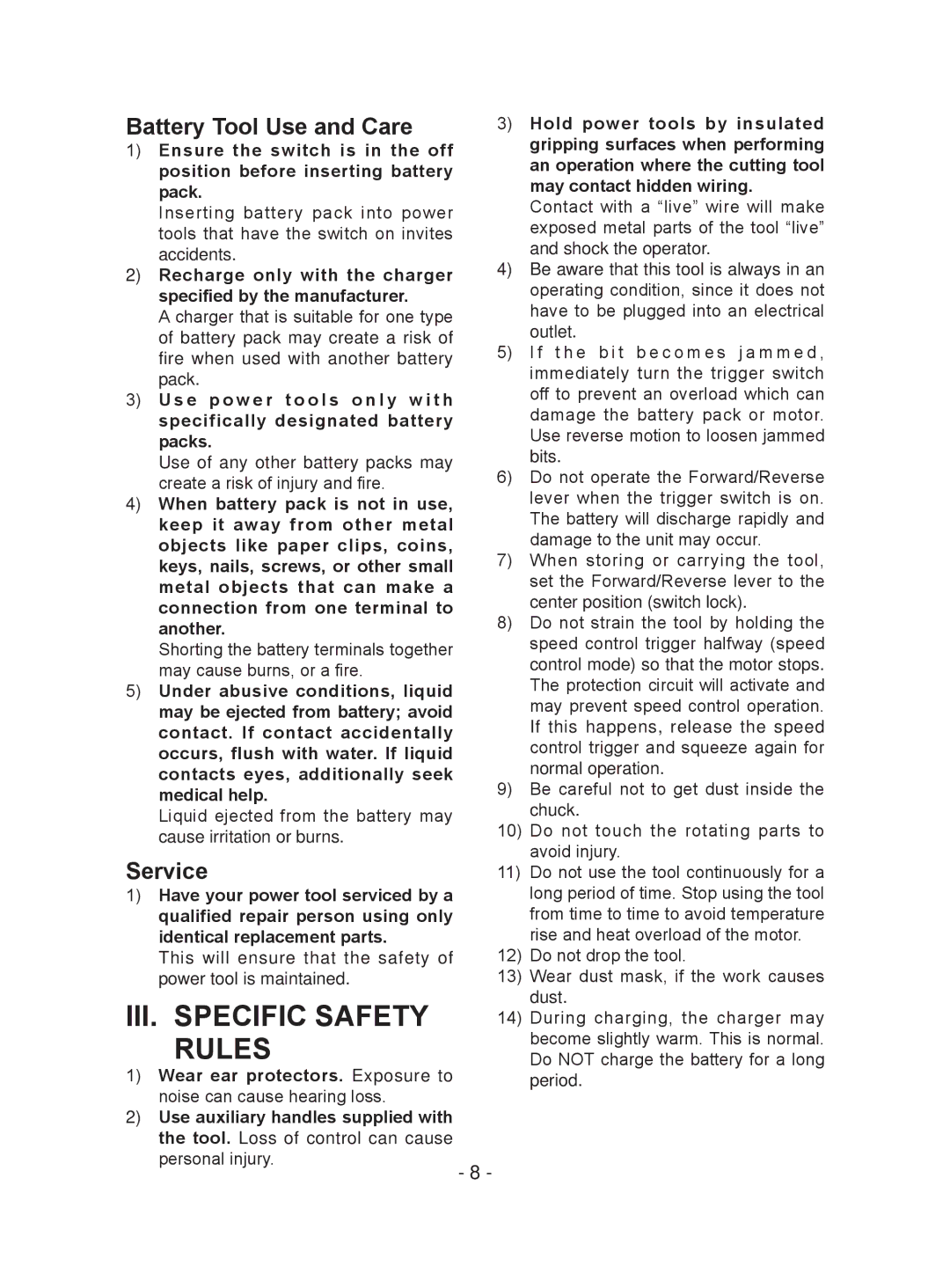Battery Tool Use and Care
1)Ensure the switch is in the off position before inserting battery pack.
Inserting battery pack into power tools that have the switch on invites accidents.
2)Recharge only with the charger specified by the manufacturer.
A charger that is suitable for one type of battery pack may create a risk of
fire when used with another battery pack.
3) U s e p o w e r t o o l s o n l y w i t h specifically designated battery packs.
Use of any other battery packs may create a risk of injury and fire.
4)When battery pack is not in use, keep it away from other metal objects like paper clips, coins, keys, nails, screws, or other small metal objects that can make a connection from one terminal to another.
Shorting the battery terminals together may cause burns, or a fire.
5)Under abusive conditions, liquid may be ejected from battery; avoid contact. If contact accidentally occurs, flush with water. If liquid contacts eyes, additionally seek medical help.
Liquid ejected from the battery may cause irritation or burns.
Service
1)Have your power tool serviced by a qualified repair person using only identical replacement parts.
This will ensure that the safety of power tool is maintained.
III. SPECIFIC SAFETY RULES
1)Wear ear protectors. Exposure to noise can cause hearing loss.
2)Use auxiliary handles supplied with the tool. Loss of control can cause
personal injury. | - 8 - |
|
3)Hold power tools by insulated gripping surfaces when performing an operation where the cutting tool may contact hidden wiring.
Contact with a “live” wire will make exposed metal parts of the tool “live” and shock the operator.
4)Be aware that this tool is always in an
operating condition, since it does not have to be plugged into an electrical outlet.
5) I f t h e b i t b e c o m e s j a m m e d , immediately turn the trigger switch off to prevent an overload which can damage the battery pack or motor. Use reverse motion to loosen jammed bits.
6)Do not operate the Forward/Reverse lever when the trigger switch is on. The battery will discharge rapidly and damage to the unit may occur.
7)When storing or carrying the tool, set the Forward/Reverse lever to the center position (switch lock).
8)Do not strain the tool by holding the speed control trigger halfway (speed control mode) so that the motor stops.
The protection circuit will activate and may prevent speed control operation.
If this happens, release the speed control trigger and squeeze again for normal operation.
9)Be careful not to get dust inside the chuck.
10)Do not touch the rotating parts to avoid injury.
11)Do not use the tool continuously for a long period of time. Stop using the tool from time to time to avoid temperature rise and heat overload of the motor.
12)Do not drop the tool.
13)Wear dust mask, if the work causes dust.
14)During charging, the charger may become slightly warm. This is normal. Do NOT charge the battery for a long period.
